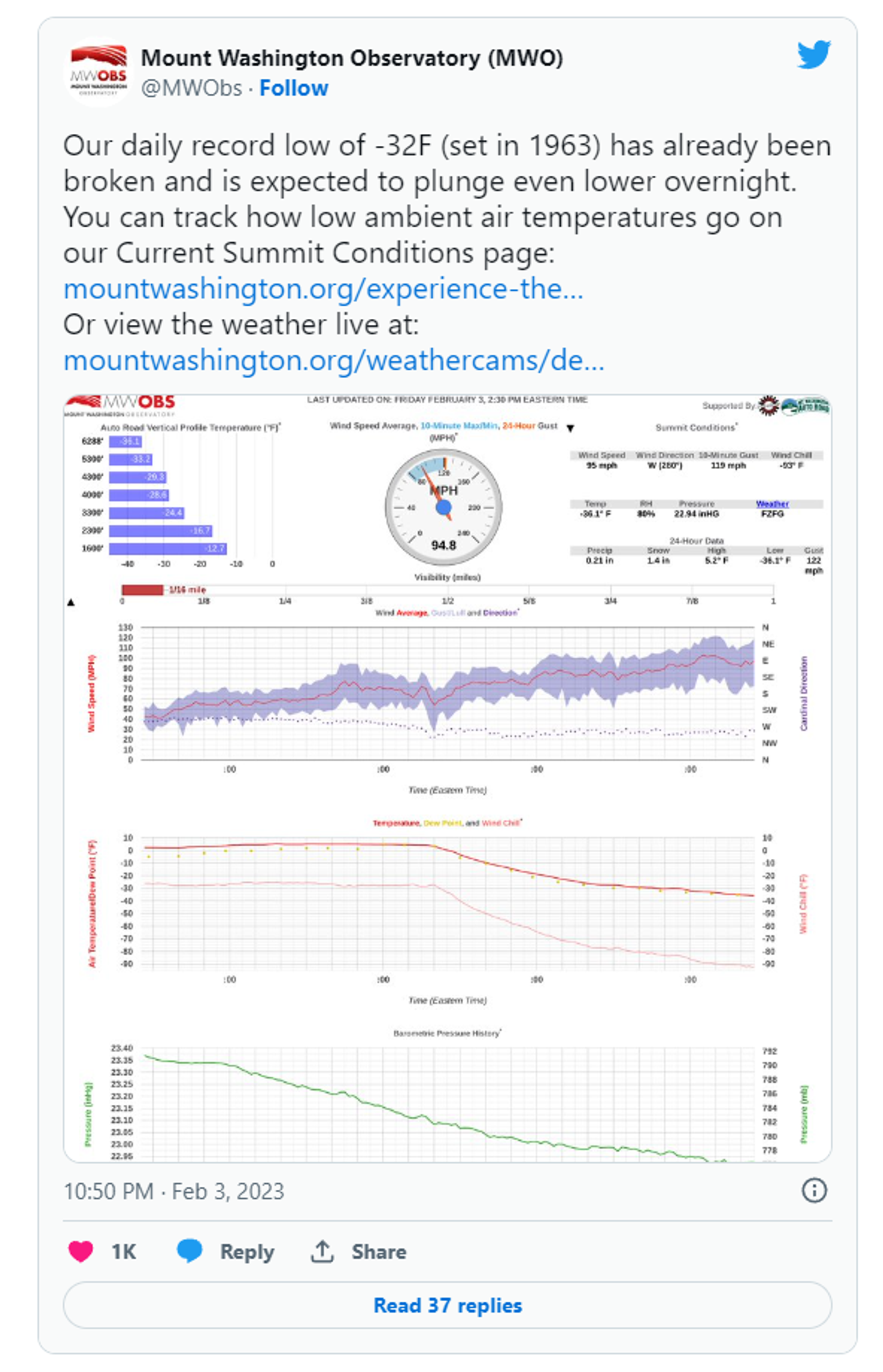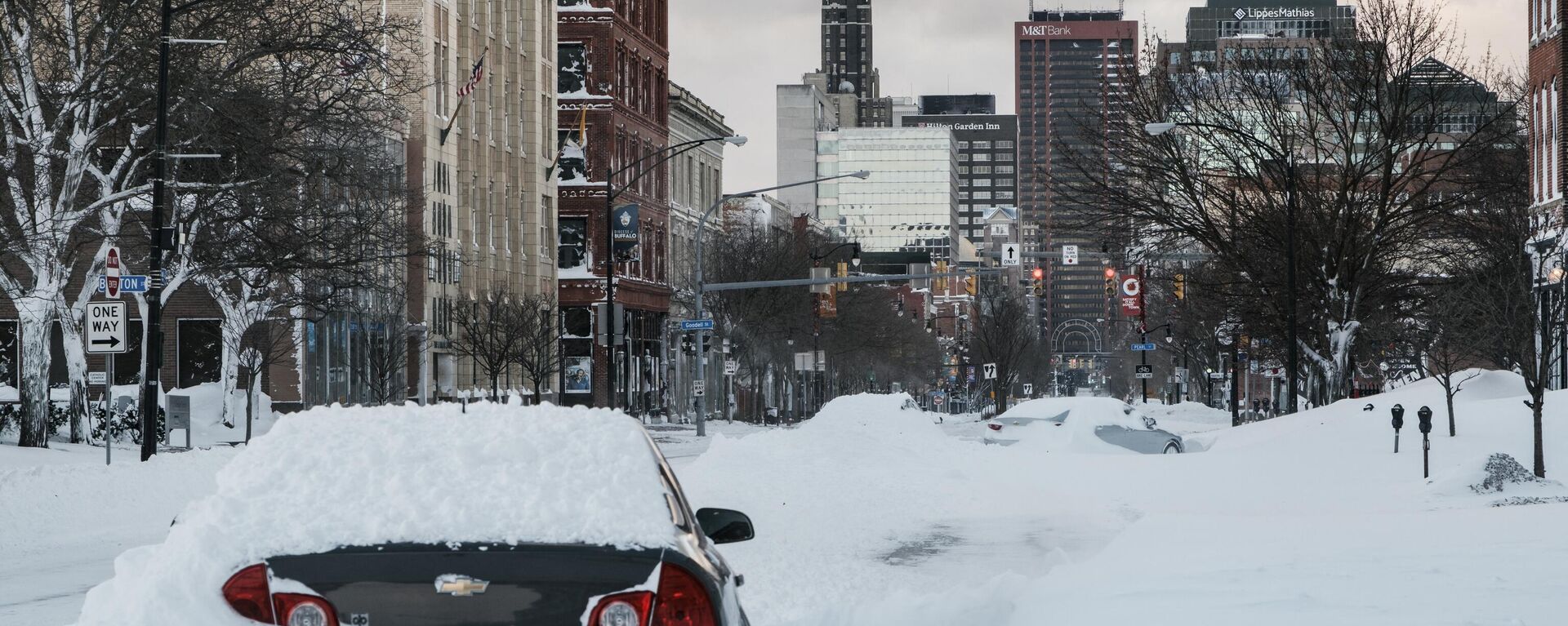Mars-like Frost Recorded on Mount Washington, Nearly Breaks Century-Old Record
21:13 GMT 04.02.2023 (Updated: 10:08 GMT 05.02.2023)
Subscribe
Mount Washington is the highest mountain in the northeastern US at 1,917 meters. The mountain is known for its dangerously variable weather and has long held the record for the 372 km/h wind speed measured on the ground.
The Mount Washington area recorded its worst frost since 1934 and the coldest winds ever, making the peak as cold as Mars. Temperatures reached 45°F (-43°C), with windchill temperatures at -106°F (-77°C). Wind gusts reached over 125 mph (200 km/h), reports Mount Washington observatory.
The wind gusts and blizzard drove visibility down to just over 90 meters. The National Weather Service reports that previously such low temperatures had only been recorded in the region in 1934.
The comparison with Mars is by no means accidental because this week, according to NASA, temperatures on the surface of the Red Planet ranged from the not so significant 16°F (-8.89°C) to the much more serious -104°F (-76.11°C). Thus, it can be stated that it was colder on Mount Washington than on Mars.
Mars has nothing on the Home of the World’s Worst Weather! For 90 years, @MWObs has persevered on top of the Northeast’s highest peak in the name of scientific research and public education. pic.twitter.com/Eqzh09FhYz
— Mount Washington Observatory (MWO) (@MWObs) February 4, 2023
Specialists warn that all precautions must be taken carefully in such circumstances, as the risk of frostbite increases manifold, and the efforts of emergency services may be insufficient due to the bad weather.
"I want to emphasize the danger of this cold," wrote Mount Washington weather observer Alexis George. "...These frigid cold conditions will quickly rob you of body heat, with the possibility that frostbite could develop on exposed skin in under a minute. Even small mistakes can prove deadly, with a simple slip or fogged goggles leading to a potentially life-threatening situation. In this type of weather, rescue services will have a difficult time responding to any emergency effectively."
Even the observatory staff themselves, despite being indoors, were exposed to danger when a 126 mph (204 km/h) gust of wind blew the door open due to a broken metal latch. It took the efforts of four people to fix it.
"There is half of me that loves what is going on right now, and the other half of me is pretty terrified, especially when the door fails," meteorologist Francis Tarasiewciz told US media.
Nevertheless, the New Hampshire's White Mountains observatory cat Nimbus did not seem inconvenienced by the incredibly cold weather. His main problem reportedly was taking flea medication, not the cold.
"He is actually sleeping through most of this event," said Tarasiewciz.




